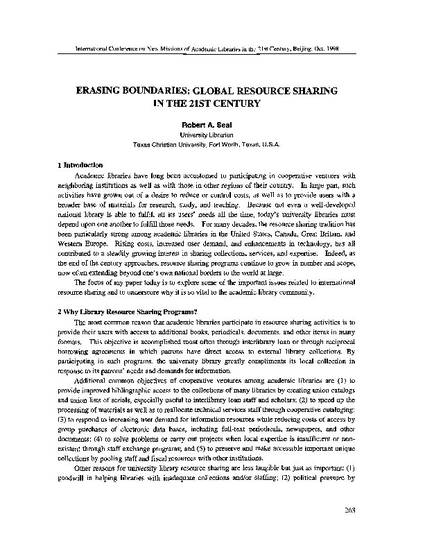
Academic libraries have long been accustomed to participating in cooperative ventures with neighboring institutions as well as with those in other regions of their country. In large part, such activities have grown out of a desire to reduce or control costs, as well as to provide users with a broader base of materials for research, study, and teaching. Because not even a well-developed national library is able to fulfill all its users' needs all the time, today's university libraries must depend upon one another to fulfill those needs. For many decades, the resource sharing tradition has been particularly strong among academic libraries in the United States, Canada, Great Britain, and Western Europe. Rising costs, increased user demand, and enhancements in technology, has all contributed to a steadily growing interest in sharing collections, services, and expertise. Indeed, as the end of the century approaches, resource sharing programs continue to grow in number and scope, now often extending beyond one's own national borders to the world at large. The focus of this paper is to explore some of the important issues related to international resource sharing and to underscore why it is so vital to the academic library community.
